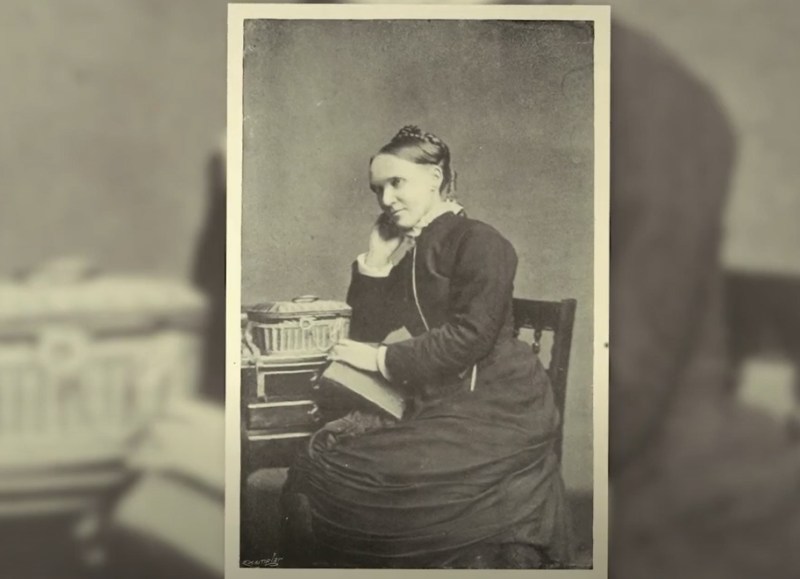Kindle Afresh the Gift of God
Sign up for a six month free
trial of The Stand Magazine!
In a world flooded with voices clamoring for our attention, it’s increasingly difficult to keep our focus on what’s truly important.
Businessman and best-selling author Stephen Covey once said, “The main thing is to keep the main thing the main thing.”
For Christians, it is imperative that we stay locked onto our biblically-based objectives or our fruitfulness can suffer. Certainly, we do not want to become either useless or unproductive in the knowledge of our Lord and Savior (2 Peter 1:8).
Toward this end, there are times when the Holy Spirit challenges us to remember God’s call on our lives, rekindle the gifts given for that purpose, and recommit to the objective.
Called to what?
In 2 Timothy 1:6-7, the apostle Paul reminded Timothy:
[T]o kindle afresh the gift of God which is in you through the laying on of my hands. For God has not given us a spirit of timidity, but of power and love and discipline.
In this opening chapter of the epistle, it is clear that Paul has not forgotten his purpose. His life was a battlefield: he was in prison for the gospel; he continued to labor in tears for those he’d fathered in the faith, and he recounted those who had abandoned him in his hour of need. Yet he exhorts Timothy not to forget that every Christian who has been saved by Christ has been “called … with a holy calling” (vs. 9).
There is a general call on the life of every believer. This call represents the invitation we received and accepted to become a child of God made in the image of God and expressed in His only begotten Son.
Bearing this image and being renewed daily according to the image of Christ, we are told: “to walk in a manner worthy of the calling with which you have been called” (Ephesians 4:1).
Thus, we are called to be God’s children and to act like God’s children – in our witness, character, good works, etc.
But there is also a specific call on the life of every believer. For example, in the very first verse of 2 Timothy 1, we see a familiar introduction: “Paul, an apostle of Christ Jesus by the will of God.” While Paul has the same general calling as every other Christian, not every Christian is called as an apostle.
There was a holy separation unto this task. Paul had received an appointment to his apostleship, like appointing a delegate to a conference or an emissary to another country. It was an assignment; there was a task to carry out on God’s behalf.
So, we are not called as apostles like Paul. Nevertheless, within the general call as disciples, aren’t we all called to something specific? From Scripture, it would seem so. For example, 1 Corinthians 12 and Romans 12 are dedicated to the proposition that we are all members of one body, and each member has something different to contribute that benefits the entire community.
Objectives to reach
An objective is a goal towards which a person spends time and energy.
The fact is, most of us expend a lot of energy in life, but what will we accomplish? How will we determine if our lives are well spent when they are over?
Objectives must therefore be specific. Objectives that are too general can become so fuzzy as to defy accomplishment.
If I say, “I want to be a good Christian” or a good husband or father, I must then ask: “What does that look like?” For example, how would I define “good husband?”
Obviously, we would start by looking at the Scripture. But then what does the Scripture say? How does the Bible define it? Have we searched out our objectives to see how God’s Word defines them? The Christian is most effective when he brings his priorities in line with God’s. Thus, the first step is discovering what God’s priorities look like.
The Chinese military strategist Sun-Tzu said, “In war then, let your great object be victory, not lengthy campaigns.” In other words, one does not want to endlessly fight battles but never get anywhere. If there is a war to win, what does it take to win it?
Obviously, in natural warfare, objectives for winning the war are established by commanders. However, smaller objectives are then identified and assigned to subordinates. Every person in the chain of command is assigned a task. Since all objectives –– no matter how large or small –– fit into the overall plan, each soldier must carry out his assigned task or risk failure up the line.
For example, in the American Revolutionary War, Paul Revere couldn’t defeat the British by himself; but failing in his task to warn the colonists of the approach of the British army could have resulted in disaster.
In spiritual warfare, it is the same thing. What has God called the church all over the world to do? How about in America? In the state where you live? How about your church? What are you supposed to be doing?
Rekindle the gift
So, we are to remember our calling and stay true to our objectives. But Paul also mentions the gifts that God has given to us (vs. 6).
The gifts of God are both the natural and spiritual abilities divinely granted to us by which we are to accomplish our calling. These serve as instruments or tools that enable us to succeed in our endeavors. For example, we might have natural abilities like speed or strength if we are athletes.
However, here in 2 Timothy 1:6, Paul appears to be discussing spiritual gifts that were, in Timothy’s case, bestowed by the laying on of hands.
Periodically we might have to “kindle afresh” those gifts, Paul says. The thought here is that God’s gifts are like a fire that must be maintained. In Vine’s Expository Dictionary, it says the gift of God “is regarded as a fire capable of dying out through neglect.” When that happens, we are commanded to stir up the embers to produce again a full flame.
Timothy had to be encouraged to do this very thing. Paul reminded this young man that he had a heritage of faithfulness in his life due to his grandmother Lois and mother Eunice (vs. 5).
That heritage wasn’t enough. Timothy also had received a spiritual gift that was in danger of dying out. So, Paul was exhorting him to stir it up so it could burn brightly again.
Moreover, because there was resistance to Timothy’s ministry – perhaps due to his youth – stirring up the gift and re-engaging the calling on his life would require him to shake off the timidity and fear that often leads to passivity.
Paul promised the young man, “For God has not given us a spirit of timidity, but [He has given us a spirit] of power and love and discipline.” (vs. 7).
In our day, the resistance to our active participation in the life of the church is every bit as difficult as what Timothy faced. Yet the exhortation to us is no different. The Christian in America is to recommit to carrying out the calling of God and to get busy putting into use the spiritual gifts divinely bestowed for that purpose.
It’s one of the ways we can keep the main thing the main thing.

Sign up for a free six-month trial of
The Stand Magazine!
Sign up for free to receive notable blogs delivered to your email weekly.


















